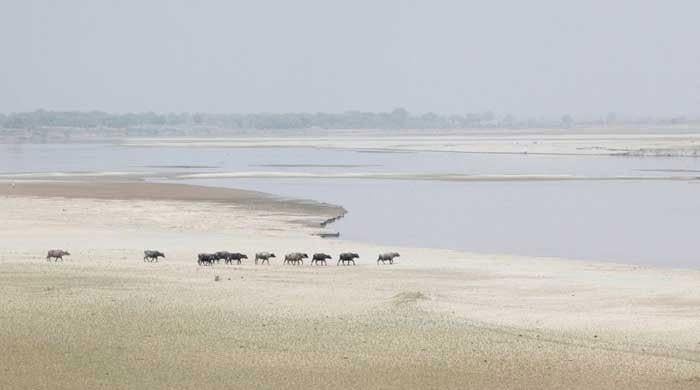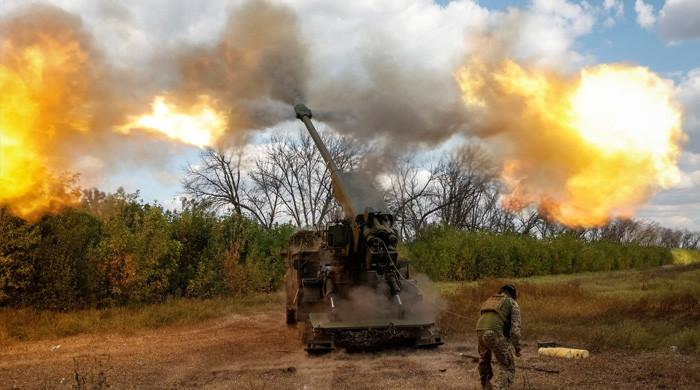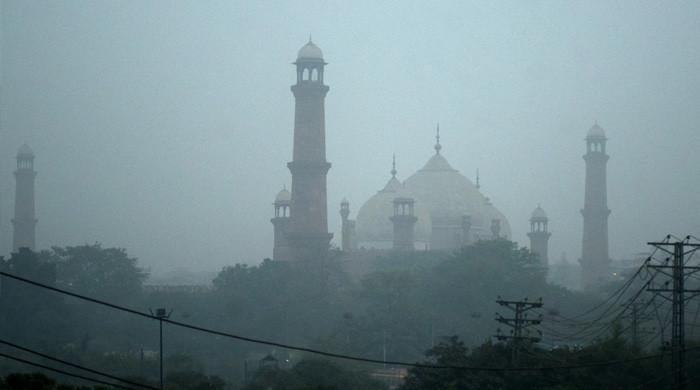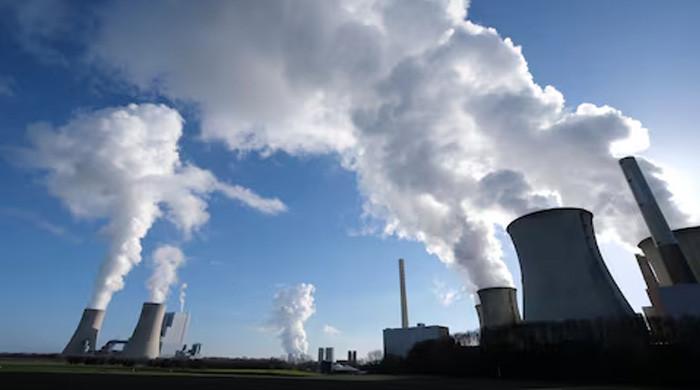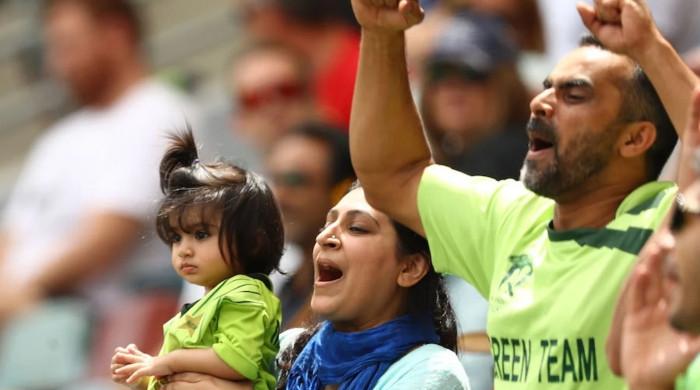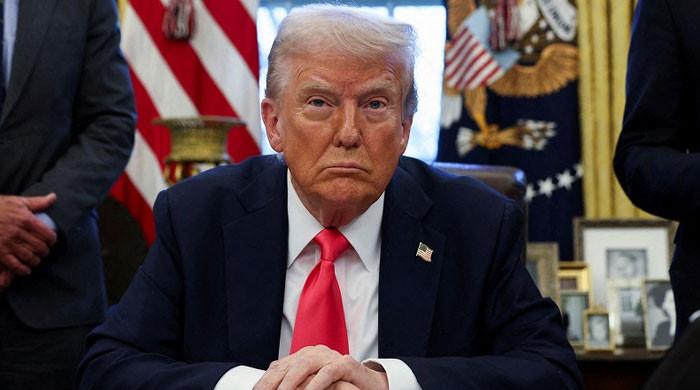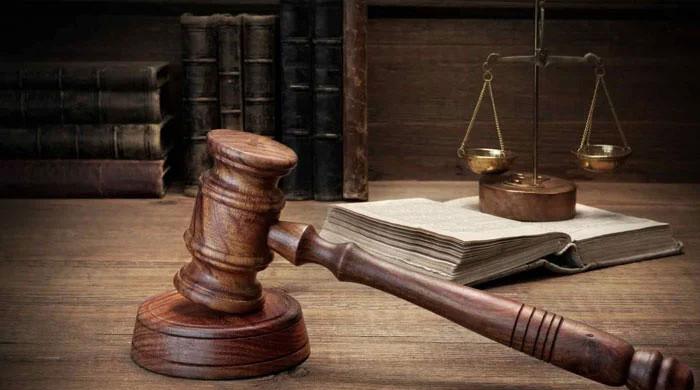Pakistan's drift into chaos
No political party has offered concrete and clear solutions beyond blame games and rhetoric
May 30, 2024

If the conflict between the establishment and a section of the judiciary continues, it could lead to more chaos and ultimately to increased repression and authoritarianism.
The PTI’s young followers are an ahistorical cult, with their sense of history beginning in 2011 or February 8, 2024. Some activists believe that Pakistan is ripe for a democratic revolution. It may instead end up with its own version of Sisi soon.
Largely ignored by the electronic media, Pakistan’s debt and energy issues are the two most critical near-term challenges requiring immediate attention. Next year, the country will pay around Rs9 trillion ($32 billion) in interest on federal government debt, plus Rs2.1 trillion ($7.5 billion) in capacity payments to private power generation companies. In total, it will pay nearly $40 billion in fixed charges, representing more than 10% of GDP. The tax burden will increase with a new IMF arrangement. Any delay in reaching an agreement with the IMF could put renewed pressure on the currency and worsen the plight of a hapless population through higher inflation.
A sovereign debt crisis could lead to prolonged economic stress and a humanitarian crisis similar to Greece's recent experience. The Greek debt crisis, which began in 2009, took nearly a decade to resolve, with the country suffering the longest recession of any advanced mixed economy. The Greek political system was upended, social exclusion increased, and hundreds of thousands of well-educated Greeks emigrated.
Those who believe new elections can resolve these issues fail to appreciate that this grave crisis has little to do with the form of government. In fact, Pakistan’s debt problem has worsened in recent years, with both the PML-N and PTI governments sharing responsibility. No political party has offered concrete and clear solutions beyond blame games and rhetoric.
Pakistan cannot be run via social media, television talk shows, or in courts. The road ahead is rocky and perilous, with shrinking space for ethnic and other minorities (47% of the population). The desire for political reconciliation, no matter how sincere, is merely wishful thinking in the current environment.
40% of the population lives below the poverty line, and the majority of the poor and working classes struggle daily to pay bills and buy food. Meanwhile, much of the upper middle class is obsessed with accumulating wealth and lives in a bubble, unmindful of the working classes' misery. People cannot eat democracy; they need jobs and food.
Old methods are being used by the powerful, who are unable to find a more productive use of raw power than micromanaging TV channels or crushing dissent. They acted to remove Imran Khan only when some of Pakistan’s closest allies became concerned about the country's future due to his reckless policies, which antagonised even close allies like China and Saudi Arabia. Former army chief General (retd) Qamar Javed Bajwa once held Khan in high regard. A Russian diplomat told a member of Pakistan’s visiting delegation to Moscow on the eve of Khan’s meeting with Putin in February 2022 that the Russian president had no patience for sermons and “your PM seems to be fond of it”. This caution came immediately after Khan lectured a Russian TV interviewer on Sufism and morality.
Political leaders cannot agree on even a basic modus vivendi due to personal vendettas. The leaders of the two biggest parties, Nawaz Sharif and Imran Khan, have at different points sought to rule as dictators, actively working with the establishment to pursue their ambitions.
Nawaz Sharif once aspired to be a Khalifa. He won more than enough seats in his second term after a massively rigged election in February 1997 but failed to get his 15th constitutional amendment bill, the ‘Shariat bill’, through the Senate. This bill, introduced on August 28, 1998, and passed by the National Assembly on October 9, 1998, empowered the prime minister to enforce his interpretation of right and wrong in Islam and Shariah, irrespective of the constitution or court judgments. The Senate, where the PML-N was in the minority, refused to table the bill. Sharif was so angry at this defiance that he publicly demanded the senators be forced to pass the bill.
Even after signing the Charter of Democracy in 2006, Nawaz Sharif worked against the PPP’s elected government in 2011, attempting to topple it with the help of then CJ Iftikhar Chaudhry. Only seven years later did Nawaz Sharif express regret over his role in the ‘Memogate’ conspiracy, hatched by then ISI chief Shuja Pasha.
Imran Khan publicly supported Pasha’s allegations. Even the PTI’s current president, Pervez Elahi, alleged in a 2019 interview, before joining the PTI, that General Pasha tried to force him and others to join the PTI in 2010.
Imran Khan has replaced Nawaz Sharif as Punjab’s most popular leader. Perhaps few remember a story published in the February 1995 issue of Herald magazine: "With an agenda more ambitious and novel than any other political force in the nation's history, cricket idol turned philanthropist Imran Khan — along with former ISI chief General Hamid Gul and Pasban's Mohammad Ali Durrani — is about to launch his much speculated about 'pressure group'. Key players within the all-powerful establishment, inside sources argue, foresee the group as being a second, rather than third force, with Imran Khan viewed as an eventual anti-PPP alternative to Nawaz Sharif, should Sharif and his group of Muslim Leaguers fail to deliver."
Recently, well-known TV anchor Mubasher Lucman confirmed the widely known ‘London plan’. Once a strong supporter of Khan, Lucman claimed to have hosted the meeting of Imran Khan, Pervaiz Elahi, and Dr Tahirul Qadri at the Dorchester Hotel in London in June 2014. It is alleged that former ISI chief Zaheerul Islam, who openly supported the PTI after his retirement, backed this coalition.
Imran Khan is no doubt popular, but he has a fascist mindset. Democracy is more than just winning elections; it requires governments to work with the opposition and others in a spirit of compromise and accommodation. One of his federal ministers declared on national TV on June 11, 2019, that the country’s problems would be solved only if they could hang 5,000 people, but the constitution was a hurdle. Imran Khan never contradicted that statement. Imran is also confused about which governance model to follow: Westminster democracy, Khomeini’s Iran, the Chinese authoritarian system, or a vague notion of Riyasat-e-Madina.
Even now, the PTI has given no programme for reform. For example, would it cut defence spending? If yes, by how much? What percentage of GDP would the PTI spend on education, and how would it find the money given its terrible record of high fiscal deficits?
Other political leaders are incapable, corrupt, and suffer from cronyism and nepotism, reminiscent of a bygone era, and are out of touch with modern challenges. They should retire. But what about the 99%? Unfortunately, their suffering is unlikely to end soon unless Pakistan’s ruling elites learn from the remarkable development stories in East Asia. But do any among the powerful elites read? Even if they do, do they care about the country’s long-term future? Evidence suggests otherwise.
Given the track record of the establishment and its current and former favourite politicians, it is naive to believe any power arrangement among them has a realistic prospect of addressing the grave and complex challenges head-on. The country cannot remain in denial of the leadership vacuum and pervasive crisis of competence. Pakistan will need extraordinary measures to fill this gap, or the self-inflicted crises will continue to drive it inexorably toward chaos.
The writer is former head of Citigroup’s emerging markets investments and author of ‘The Gathering Storm’.
Disclaimer: The viewpoints expressed in this piece are the writer's own and don't necessarily reflect Geo.tv's editorial policy.
Originally published in The News




